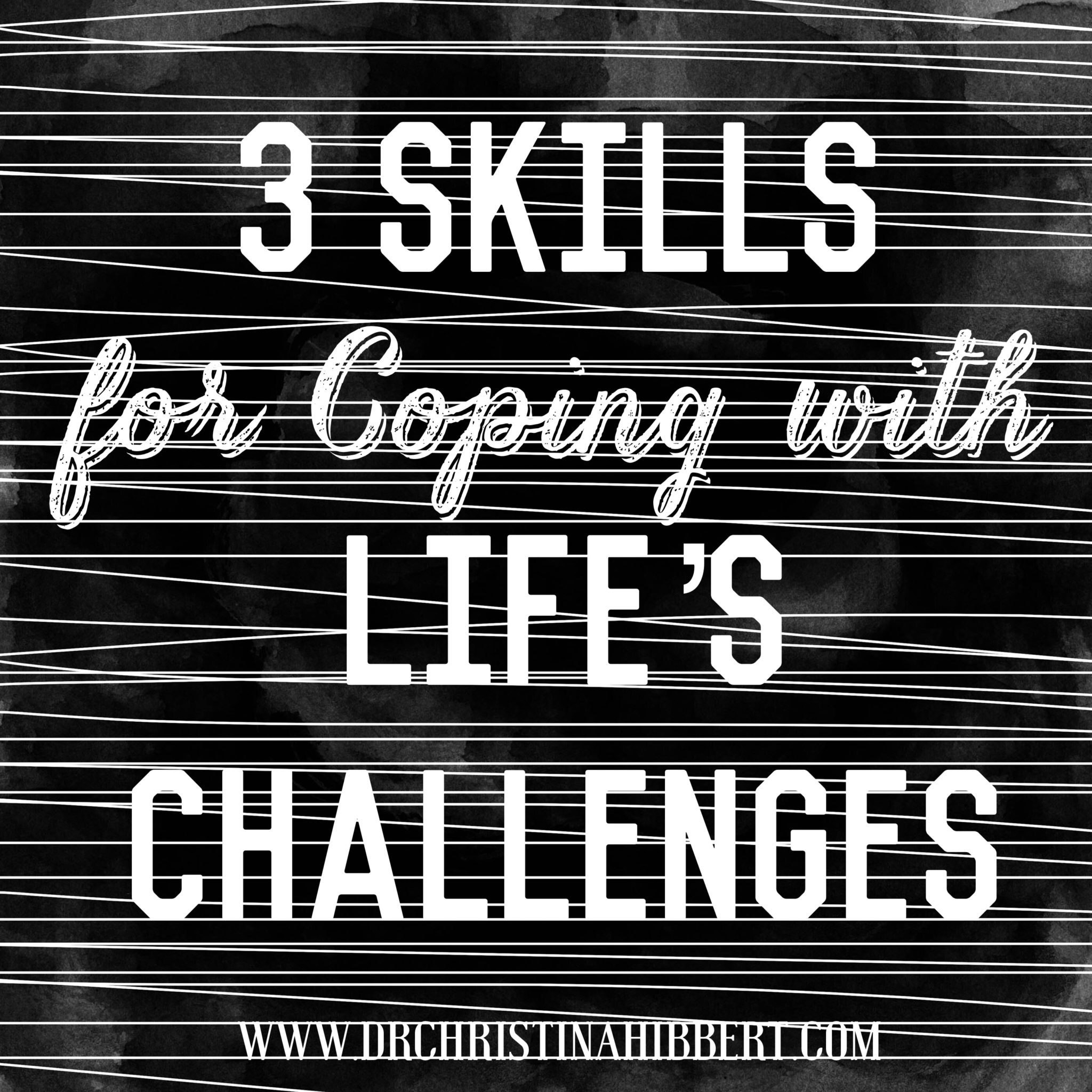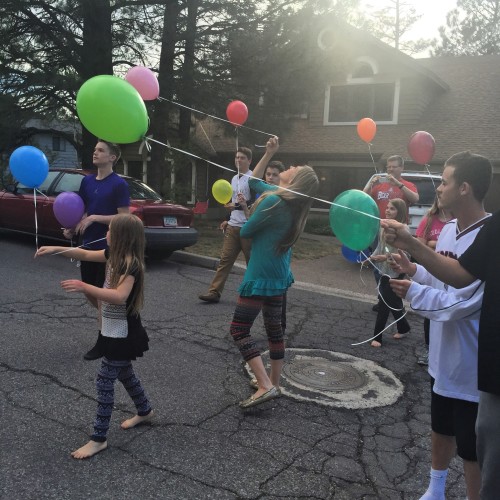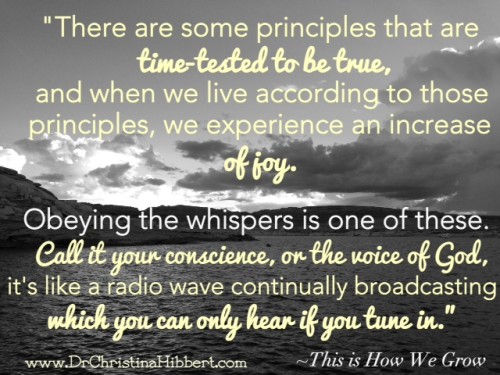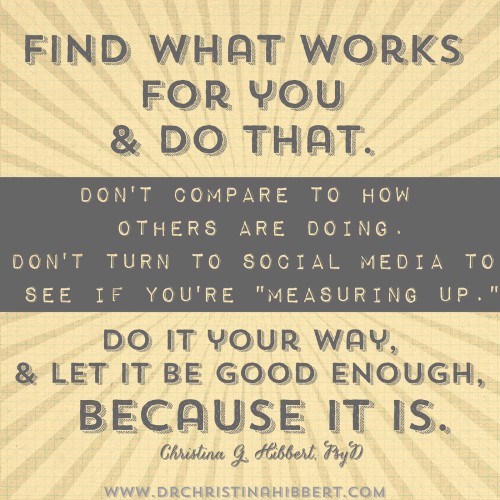
07 Mar 3 Skills for Coping with Life’s Challenges
I’ve experienced my fair share of life challenges over the years. From multiple deaths, loss, and grief, to postpartum depression, depression and anxiety, to a car accident and a year later, a concussion, I am very familiar with the battle that life can be.
I am also familiar with life’s beauty, and because of my trials I’ve learned one crucial lesson: “Never take for granted the good times, for you never know when life will turn, like the weather.”
It’s one thing I always strive to do, yet still struggle to do–to notice the good, the memorable moments, and to appreciate all I have while I still have it. It’s a skill that’s served me well, one I’m still developing, and one I’m seeking to pass on to my children, too.

My family with my friend’s family, sending balloons to Jody in heaven to remember her one year death anniversary. We need each other.
Life’s Challenges
I’m no different than anyone else. Just in the past month, friends around me have experienced: 1) a life-altering and threatening diagnosis, 2) the sudden death of a granddaughter, 3) a car accident in which one survived and one did not, 3) the one-year anniversary of a sibling’s death, and just last week, 4) a beloved young client I’ve known for over 12 years died suddenly of a fatal infection after a routine surgery.
We all have major life challenges, hardships, and loss, and we all must learn the skills of coping with these if we want to truly live, and to appreciate what life has to offer each day–to overcome, to become and to flourish while we may.
3 Skills for Facing, Coping with and Overcoming Life’s Challenges
I recently interviewed a remarkable woman for Motherhood Radio/TV, a woman who battled breast cancer and won, only to learn she’d developed a terminal illness related to the very treatment that had cured her cancer. Kim Fredrickson, wife, mother, author, and therapist of over 30 years, inspires me. She is living proof that even in the hardest of times–facing the end of life–we can overcome, we can continue to become, and we can flourish, shining our light brightly for others to see, and to follow.
This week I share Kim’s interview on Motherhood, and I hope you will check it out and share it with all you know and love. I also wanted to share three skills she’s learned through this, her most significant trial, three skills she attributes her positive and inspiring outlook to, three skills she says she could not live the life she’s living now without.
1) Faith.
I agree with Kim, faith is where it all begins. For some, this may sound easy; perhaps you’ve always focused on faith. For others, you may struggle with this; faith isn’t a word that’s usually in your vocabulary. Let me first say that faith is a principle of action. It’s the underlying motive for all we do. We must first believe we can get out of bed and walk before we can make it happen. Such is faith. We may have faith in ourselves, faith in others, and faith in God, one’s Higher Power, or the Universe. Whatever the words we use, faith is essential when facing life’s challenges.
Do you believe you will be well again? Do you believe you will heal? Do you believe all is not lost, that there is some glimmer of hope? If not, then this is where you begin. Focus on faith. Use prayer, meditation, journaling, scriptures or sacred texts, nature, family, and above all, connection, to get real and honest with yourself about your faith. What is lacking? How does fear play a role? Fear is the opposite of faith, and of love, and identifying our fears allows us to face them, thus increasing our faith and love.
If you’re already feeling strong in faith, then focus even more to increase and grow that faith. How might you better trust in God’s plan for you? How might you trust that all will be well when it’s meant to be, and what steps can you take now to do your part in bringing your faith to life?
Faith is the foundation for coping with life’s challenges. One way or another, it will make or break you when life takes a turn. Choose faith, my friends. Choose faith.
2) Self-compassion.
In our Motherhood interview, Kim shared her experience of discovering she had breast cancer for the first time. Her best friend had been diagnosed with breast cancer, gone through treatment, and died, and Kim had seen what it had done to her along the way. She didn’t want to suffer the same, and so she made a decision right then and there. Out loud, she spoke the words that would define her response to what life had handed her: “I will be a good friend to myself throughout this experience.” And she has been. Kim is an incredible example of practicing self-compassion.
What Kim did for herself is exactly what we need to do for ourselves everyday. It shouldn’t take a major life event to teach us self-compassion. It should be part of our everyday routine. We must love ourselves, be kind to ourselves, think kindly about ourselves, and as Kim suggests, ask ourselves, “What soothes me?” and do that everyday.
There is so much we can do to improve our self-compassion, from taking a break from life for even ten minutes to doing something fun with friends, to developing our relationships, prioritizing what matters most, and seeking more meaning in each and every day. The most important thing, however, is to do something. Do one thing to practice self-compassion today, and learn more about self-compassion in my article, Practicing Self-Compassion: How to Give Yourself a Break, and on Kim’s website (www.KimFredrickson.com) and books, “Give Yourself a Break,” and “Give Your Kids a Break.”
3) Grieve well.
I love this phrase, “Grieve well.” This is something Kim said in our interview, as her third skill of facing her end-of-life challenges. Grieve. We all experience loss on a regular basis, though we don’t always identify it. We lose a job, a home, finances, security, friendship, faith, support, and so many other things, all the time. But do we identify these as losses and grieve them? Of course we will grieve when a loved dies, but grief isn’t just for death.
As we identify our losses and choose to grieve them, we open ourselves up to greater healing. We open ourselves up to processing and feeling and overcoming the things we feel as we go, and this frees us up inside, like a letting go of things that are past and gone. It frees us up for more of the good stuff, like gratitude, peace, joy, and love.
If you’re wondering “How do I grieve?” then read this. You simply let yourself feel what you feel. If you’re wondering, “How do I grieve well?” I say the only answer is to continually let yourself feel, grieve, and heal. To actively grieve and not just wait around for things to get so hard that you have no other choice. (Read “Dealing with Grief,” here.)
Practice These 3 Skills–Always
These three skills, when developed to their fullest, can provide relief, comfort, and healing in times of life distress. More so, however, they can provide greater self-worth, love for and from others, and yes, even joy!
Practice these three skills when life challenges come, but also all the time. These are three skills that can help you overcome, yes. But they can also help you become your best self and one day, flourish!
Let’s Connect!
SUBSCRIBE, above, “Like” me on Facebook Dr. Christina Hibbert; This Is How We Grow, & follow me on Twitter, Pinterest, & Instagram




